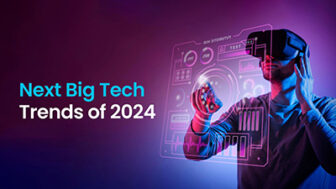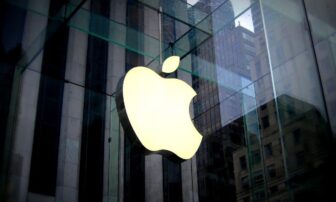The Future Unfolds: A Deep Dive into Emerging Technologies
The relentless march of technological progress has always held a captivating allure, weaving its way into our collective imagination through the lens of science fiction. Yet, the line separating fantastical visions from tangible realities has never been thinner. We are living in an era where emerging technologies are no longer confined to research labs but are actively shaping our world, revolutionizing industries, and redefining what it means to be human in the 21st century.
This isn’t merely about incremental advancements; it’s about a fundamental paradigm shift in how we live, work, and interact with our environment and each other. As we stand on the precipice of this technological renaissance, it’s crucial to delve deeper into the specific innovations driving this change and analyze both the immense opportunities and complex challenges they present.
1. Artificial Intelligence: The Dawn of Cognitive Systems
Artificial intelligence is no longer a futuristic concept relegated to the realm of science fiction. It has permeated every facet of our lives, often operating behind the scenes to personalize our digital experiences, power our virtual assistants, and even provide sophisticated solutions in complex fields like medical diagnostics.
Machine learning, a powerful subset of AI, allows computational systems to learn from vast datasets without explicit programming. This ability to analyze, adapt, and improve autonomously is driving breakthroughs in natural language processing, image recognition, and predictive analytics, fundamentally altering industries like finance, cybersecurity, and customer service.
Moreover, the rise of deep learning, inspired by the structure of the human brain, has unlocked new frontiers in AI’s capacity to process information and solve intricate problems. As these systems continue to evolve, we can expect a surge in automation across various sectors, leading to increased efficiency, data-driven decision-making, and the potential to address some of the world’s most pressing challenges.
2. The Metaverse: Reshaping Reality, One Interaction at a Time
Imagine a world where the limitations of physical space dissolve, and we can seamlessly interact with digital environments and individuals across geographical boundaries. This is the ambitious vision driving the development of the metaverse – a persistent, shared virtual realm built upon the convergence of virtual reality (VR), augmented reality (AR), and the internet.
While still in its nascent stage, the metaverse holds immense potential to revolutionize a multitude of industries. Imagine immersive virtual classrooms that transform education, virtual conferences that facilitate global collaboration without the need for physical travel, or even virtual economies driven by digital assets and experiences. The potential applications are as vast as our imaginations.
However, the development of the metaverse also raises crucial ethical and societal questions. Issues surrounding data privacy, digital ownership, accessibility, and the potential psychological impact of extended virtual immersion require careful consideration as we navigate this uncharted territory.
3. Blockchain: Architecting Trust in a Digital Age
The impact of blockchain technology extends far beyond its association with cryptocurrencies. At its core, blockchain is a decentralized and immutable ledger system that enables secure, transparent, and tamper-proof transactions. This inherent architecture of trust has sparked a wave of innovation across various sectors.
In supply chain management, blockchain can track the provenance of goods, ensuring authenticity and ethical sourcing practices. In healthcare, it can create secure and interoperable platforms for patient data, improving diagnoses and streamlining medical research. Even in government and voting systems, blockchain holds the potential to enhance transparency, security, and public trust.
As we move towards an increasingly digital world, establishing trust and accountability in online interactions is paramount. Blockchain technology, with its unique ability to foster verifiable and auditable systems, will be a critical driver in shaping a secure and reliable digital future.
4. Gene Editing: The Power to Rewrite Life’s Blueprint
Advancements in gene editing technologies, particularly CRISPR-Cas9, have ushered in a new era in genetic engineering with the potential to revolutionize healthcare and transform our understanding of life itself. With the ability to precisely target and modify DNA sequences, scientists are exploring groundbreaking applications for treating genetic diseases, combating inherited disorders, and potentially even enhancing human capabilities.
The prospect of eradicating debilitating diseases like cystic fibrosis, Huntington’s disease, and certain forms of cancer at their genetic roots is both exhilarating and fraught with ethical complexities. The potential for unintended consequences, the ethical implications of germline editing (making changes inheritable by future generations), and concerns about equitable access to these potentially life-changing therapies require careful consideration and open public discourse.
5. Sustainable Technologies: Forging a Path to a Greener Future
The urgency of climate change has ignited an unprecedented wave of innovation in the realm of sustainable technologies. Driven by the need to mitigate the effects of human activity on the planet, researchers, entrepreneurs, and policymakers are increasingly prioritizing solutions focused on renewable energy, sustainable materials, and environmentally friendly practices.
The proliferation of solar and wind power technologies, the rapid advancements in electric vehicle technology, and the development of alternative protein sources like plant-based meat are just a few examples of this global shift towards a more sustainable future. Additionally, carbon capture and storage technologies are being explored as a means to reduce greenhouse gas emissions and mitigate the effects of climate change.
As the world grapples with the consequences of environmental degradation, sustainable technologies offer a beacon of hope and a pathway towards a more balanced and thriving future for generations to come.
Navigating the Uncharted Waters of Technological Advancement
The unprecedented pace of technological progress presents us with a double-edged sword. While the potential benefits of these innovations are vast, promising solutions to some of humanity’s most pressing challenges, we must also acknowledge the potential risks and ethical considerations they raise.
The potential for job displacement due to automation, the amplification of existing societal biases through AI algorithms, the ethical implications of gene editing, and the potential misuse of powerful technologies are challenges we must proactively address. Establishing robust ethical frameworks, fostering inclusive innovation, and ensuring equitable access to the benefits of these technologies are essential for navigating this uncharted territory.
The future is not a predetermined outcome, but rather a canvas upon which we, as a global society, will paint our collective destiny. By embracing a spirit of responsible innovation, fostering open dialogue about the implications of these transformative technologies, and prioritizing the well-being of both present and future generations, we can harness the power of progress to create a more equitable, sustainable, and prosperous future for all.





